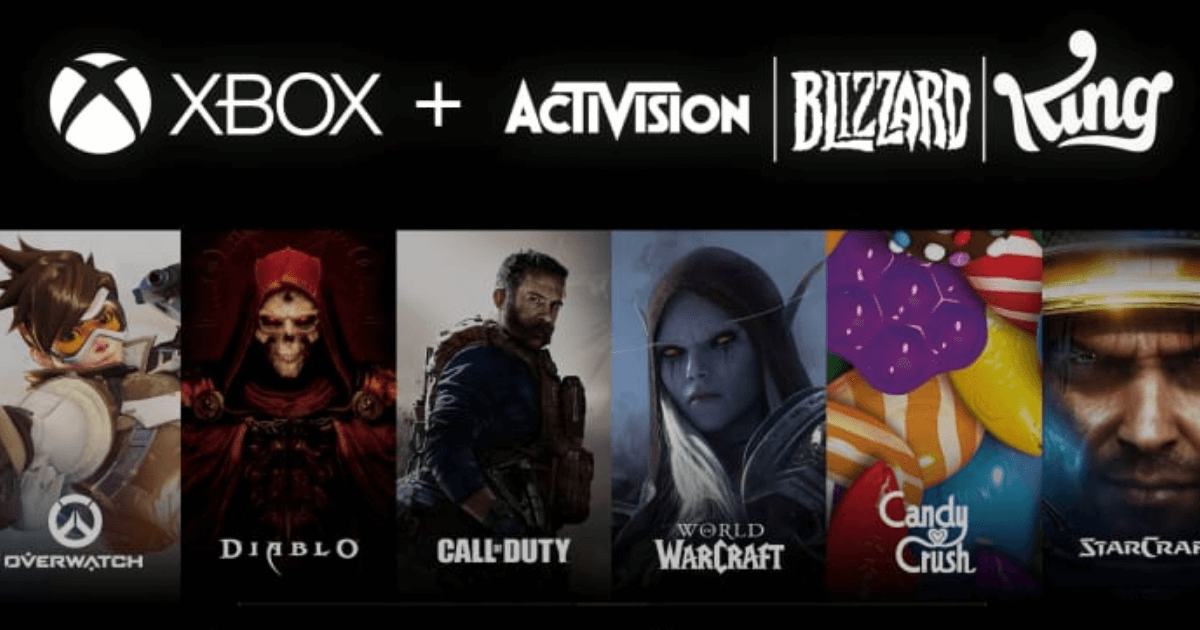
Videogame Mergers Deepen Licensing Potential
The mergers and acquisitions roiling the videogames business potentially give licensees a deeper play in brand portfolios.
Much will hinge on licensees’ existing relationships with the companies involved. But licensing executives see an opportunity for broader licenses.
In the case of Microsoft’s proposed acquisition of Activision Blizzard Entertainment and Take-Two Interactive’s pending agreement to buy Zynga, the companies involved have well-established licensing programs: inbound, outbound or both.
Microsoft has a broad licensing program across its Halo brand as well as those acquired through purchases of Mojang (Minecraft), Bethesda Softworks (Skyrim, Fallout 76, The Elder Scrolls). The same holds true for the potential purchase of Activision, which has broad outbound licensing programs for “Call of Duty”, “Overwatch”, and “World of Warcraft” as well as King Digital’s “Candy Crush”. In the case of Take-Two (“NBA 2K”, “World Wrestling Entertainment 2K”) and Zynga (“Star Wars Hunters” is due this year ) there’s more of a focus on inbound licensing.
And you also have Netflix, which acquired Night School Studio (Oxenfree) last fall and is developing a gaming subscription service that is already drawing from its original programming for titles, including “Stranger Things.”
New Opportunity
“For us these mergers are two-fold in that they are an opportunity that allows us to negotiate the representation of more brands under a basket deal and even more cross-collateralize amongst titles so that we are able to spread our risk across a broader portfolio,” said Giovani Antonioni, Chief Operating Officer at apparel licensee Difuzed, which has licenses for “Assassin’s Creed”, “Doom”, “Skyrim”, “Pokémon” and others. “It also gives us visibility to emerging titles or secondary games at retail because we can, in essence, create an [Microsoft Xbox] Game Pass retail destination.”
Indeed, one of Microsoft’s motivations behind buying Activision is acquiring more content for its Xbox Game Pass subscription business, which has 26 million subscribers, and the emerging “metaverse” for cloud gaming that also will include competing services from Sony (PlayStation Plus) and others.
The mergers and acquisitions also come as gaming moves through a shift in which it increasingly becomes more mainstream, something that is evident from sales data. The global games market was projected at $175 billion in 2021 and will pass $200 billion by 2023, when there will be an estimated 2.9 billion players worldwide, according to the research firm Newzoo. Mobile has already taken a 50% share of the gaming market and is valued at $90.7 billion.
As the video and mobile games market grows through consolidation and the armies of independent developers potentially thins, so to might the ranks of licensees, who themselves might combine to scale their businesses, industry executives said.
Consolidation
‘“It is a consolidating world of hardware and software and I am guessing” Microsoft, Sony and others “are going to work with fewer partners for consumer products,” Tim Kilby, brand and ecommerce director at licensed textiles supplier Character World, said. “They prefer working with big companies with big reach because they are going to develop even bigger budget games. We, along with other companies, are going to benefit from that.”
Licensees also will likely benefit from independent game developers being purchased by larger firms with established licensing programs. In many cases, as Microsoft acquired games companies, it assumed licensing responsibilities while leaving them to develop new titles. For example, in the case of Mojang, which when it was an independent company eschewed licensing, now has a broad program under Director of Minecraft Consumer Products Federico San Martin.
“The benefit of the big companies is that they know how to do licensing and they are business-focused,” said Clint Vosloo, a former Global Brands Group executive who recently joined Difuzed as gaming development director. “They let the gaming people focus on what they do best, which is story-telling and game and character building. The smaller gaming companies often don’t offer style guides to licensees. They just say ‘here is the game’ and then we have to go into the game and draw up our own style guides. The bigger companies have style guides ready

















